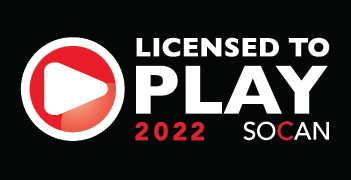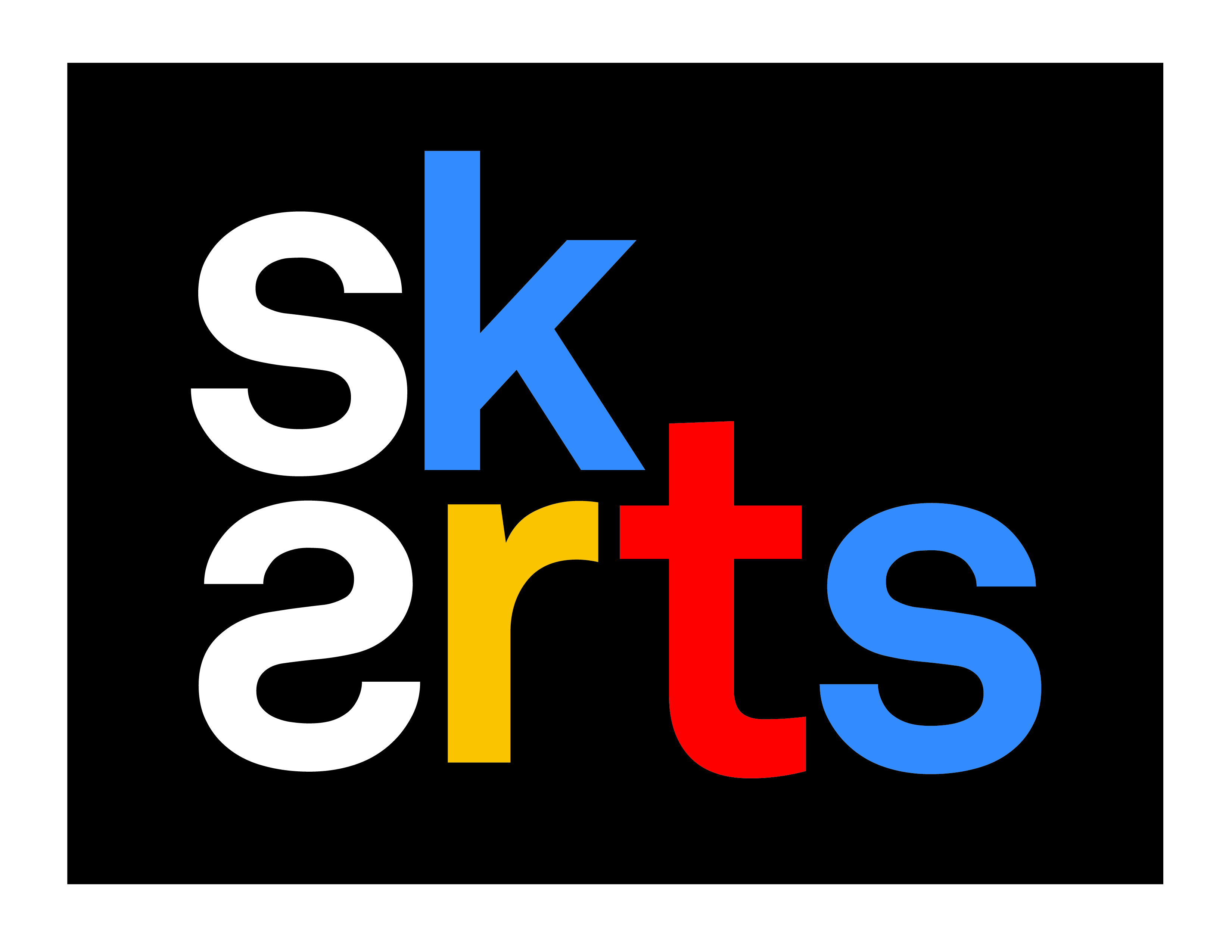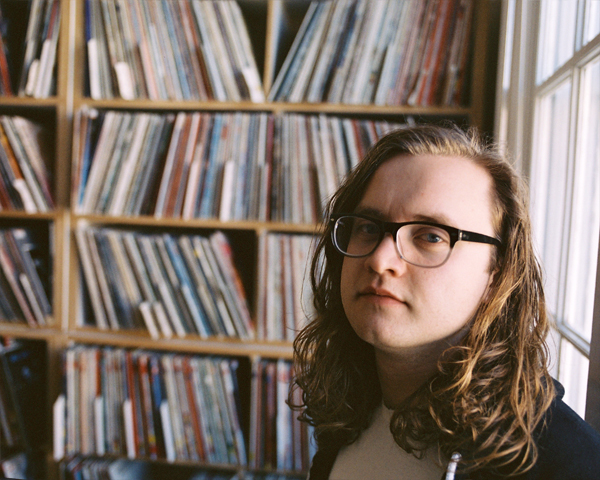
It's been a busy year for Ryan Davidson of Feral Children. He has become a dad and travelled to Africa, all while preparing a slew of releases that includes a couple of albums, EPs and singles.
First off, Feral Children has announced the track listing and cover art for their new 7" which includes the tracks "Reverb" and "Ancient Videotape." The single is being released by a fledgling Saskatoon label by the name of Leaning Trees. In fact, the Feral Children single is literally LTR001.
Here's the front cover art for the vinyl single and a taste of the A-side track:
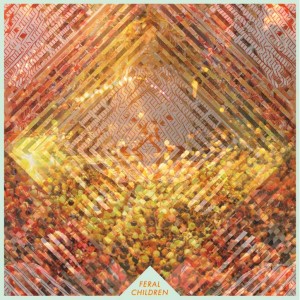 [audio:http://cfcr.ca/pub/blog/uploads/2011/05/Feral Children - Reverb.mp3|titles=Feral Children - Reverb]
[audio:http://cfcr.ca/pub/blog/uploads/2011/05/Feral Children - Reverb.mp3|titles=Feral Children - Reverb]Feral Children - Reverb
CFCR's Program Director Jay Allen recently had a chance to sit down with Ryan and talk about all the recent developments in his life and the life of Feral Children.
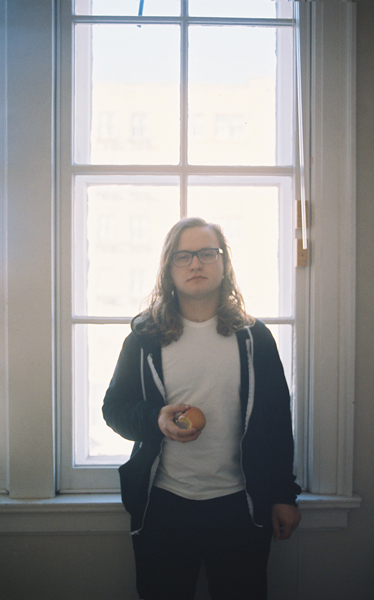 Jay Allen: There have been a lot of changes, both in Feral Children and in your own personal life. Let’s start by talking about the band. You’ve gone from being a solo project to becoming a band. Who’s in the band and how has the process of becoming a band been?
Jay Allen: There have been a lot of changes, both in Feral Children and in your own personal life. Let’s start by talking about the band. You’ve gone from being a solo project to becoming a band. Who’s in the band and how has the process of becoming a band been?Ryan Davidson: I’ll say first that, with the solo thing, I was pretending it was a band for a few years. I was touring and trying to make the live sound be as full as possible. That was the trick. And calling myself ‘Feral Children’ when it was just me, it sounds like people and not just one dude.
The band now [consists of] Bennett Dobni, who is in many musical projects, like Dreaming of Electric Sheep and Zombifyus. Ben plays drums and samples. Sarah Charters plays bass and Will Kaufold is the guitar player… wizard. He’s very educated; he plays violin and trombone and also makes electronic music as Form.
JA: It seems like you’ve brought a lot to the table. Like you said, with Feral Children, you were attempting — I think very well — to make a sound like there was more than one person involved and you could adeptly bring that to a live stage. Now that you’ve added all these new people, do you still make music in the same way, plus the rest of the band, or are you finding you don’t have to make the music as dense because you have the band?
RD: It’s definitely altered the way I go about making the music. I jam by myself all the time to figure out what I want to do to make up these songs and fit words to it. It’s funny, going into the band initially, I brought in songs that I had been performing by myself and layering like crazy. So I had to strip all of it back. Basically, instead of being guitar, bass and drums with an extra layer of guitar or keyboard, I stripped it down to a guitar riff and a beat coming from me. It changes the way I’m thinking about it in my head, while practicing by myself. It’s always changed by the people in the band; they always have opinions of where they want things to go. I’m finding now more that I want them to change it. I go in with a very rough idea of something, and then say “what do you guys think?”
It’s been interesting how it’s changed. I just took a month and a half break from music in all forms, and now I’ve come back to it now and had this flood and the way I’m creating is a lot different. I’m thinking about each person in the band way more than I’m thinking about anything else.
JA: After playing for years by yourself, it must have been a tough adjustment just to even think about another person playing note one.
RD: It took a while. I tried it with a drummer early on, with Ali Lake from No Birds. I tried it with her for a while, but it wasn’t working. It wasn’t her, it was me. I wasn’t confident enough in what I was doing. I didn’t know how to pull it off when there was more than one person, because I’m making live loops that I can form to, but it’s harder for other people to, because I know what I’m going for. So, that was an adjustment. We had to get over my live loops. We had to change the base of how we were making our songs. We’ve switched it all now. It’s just a different format than it used to be, which has been a little tricky, but the end result is much better; much fuller. More bodies on stage is going to give people a better feeling.
JA: In your live show, you still get the process of you building each song electronically, before the band comes in, so you get the visual of what you’re doing, plus the band visual experience.
RD: The beginning of our songs is sort of a thing for us. I felt like people started to like that about us; they liked watching the process. For someone who had never seen us, watching the process of a live loop being created was fairly interesting, and we didn’t want to lose that.
JA: Let’s talk about In Awe, which is an EP you’ve just released that you made by yourself. Are we going to see songs from In Awe on the upcoming band record, or was this more an exercise in music making for yourself?
RD: It was sort of like a release, actually. It was very comfortable. I do really like recording everything by myself. It’s an interesting way to see how a song takes shape. A couple of those just came out of me starting with a vocal part and a melody, and the structure just came out of me building the recording.
The band record is now quite old, actually. It’s taken a long time to mix, and we’re waiting for hopefully a grant, to promote it and press it properly. We just finished mixing, and it’s going to include some older stuff mixed in with some newer stuff, but the next record, which we’ve already started planning, will feature two songs from the In Awe solo EP, but they will sound quite different because they’ll be full band songs. Since I recorded those songs myself, the band and I have re-done both those songs and have been performing them live for a while.
JA: You’ve had a crazy year. You are a dad now and have done a lot of growing up.
RD: If you’ve had a child, something changes. Something very drastic changes. You feel more connected to living in this bizarre way. When you’re a kid, or growing up, in your early 20s even, you just have this fantasy that everything will be great and you’re going to become something and you’re brilliant, and you care a lot about yourself. Then it just changes. It gave me a better understanding of what my responsibility was in terms of living healthily and properly. Having a kid, you gotta take care of business, and that’s really helped in way for making music. Last year, I wasn’t even sure if by this point I was still going to be making music because I was having a child. I needed to come to that realization that if it wasn’t possible to keep doing what I had been doing with music, that I had to accept that.
It’s made me more serious about every little detail in music now. Like getting grants written and looking for funding. And it’s weird, when I was in Africa where my son was born, all these different little festivals dropped into my lap. So, I talked it over with my girlfriend, and as long as I take care of things at home, she’s fine with me venturing out and touring, with Wyrd Fest in particular, which really dropped in my lap. I was honoured because I felt like if I walked away in my mind music for a while, everyone would forget about me because of how fast music moves. I thought that if I wasn’t constantly poking and prodding at the scene, people would just forget, but that didn’t happen. Weird Canada came knocking and asked me to play this festival that I think is going to be crazy and awesome.
JA: It’s fortunate as well that Weird Canada has been a big supporter of Feral Children, as they’ve just won a CBC Radio contest as the best Canadian music blog.
RD: I felt like Canada won a gold medal at the Olympics. I felt more proud that I would about us winning the hockey gold. I’m a hockey fan, but I was super proud about the whole Weird Canada thing. (Founder) Aaron Levin has known about Feral Children and been talking about Feral Children for a long time now.
JA: I find a lot of reviews of cassettes on Weird Canada. Is Feral Children going to release anything on cassette?
RD: I would love to. I was thinking about releasing In Awe and these two singles I released on bandcamp as a cassette. There’s a guy in town who is starting a record label called Leaning Trees and we talked about it.
JA: It’s a funny format. The thing I like about cassettes and seven-inches or records in general, is going back to paying attention to album art, especially the more underground, cut-and-paste covers.
RD: It gives a lot of credit and confidence to people who are doing things in their bedrooms, like making art and music. They feel like it’s going to be seen by somebody, so they’re aggressively putting things out.
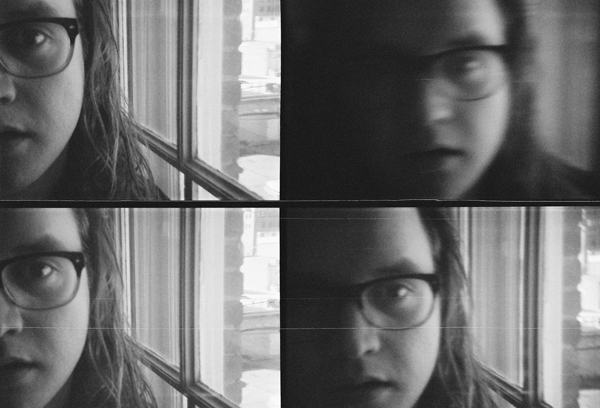
JA: So… Africa.
RD: Ya.
JA: Not only were you staring ‘becoming a dad’ in the face, but your child was going to be born in South Africa, and you went to be there for the birth. What was the experience like, personally and musically?
RD: If you listen to my show, Hallucinations (Thursdays, 3-4pm on CFCR), I’ve played a bit of African psychedelic music, and I’m interested in that 70s funky psych music from Africa. I didn’t pay too much attention to what was happening there musically, but just being there and being around the people and the culture and just how ancient that place feels, though very modern, I could feel the beat of the country the whole time. Anytime I have a moment to myself, I always fiddle and drum with my fingers; I’m always making beats with my body, basically, and there was this very specific beat would always come to me and I felt it was very African. And there was this bird making noise wherever we were, which had a certain rhythm as well. I felt it the whole time.
We went there because my girlfriend’s parents live there and she’s originally from Swaziland. We went to be with her parents and we thought it would be a beautiful place to have our child.
JA: There must have been tonnes of nature everywhere.
RD: We were about five hours away from Johannesburg, we were close to a city called Pietermaritzburg, which is bigger than Saskatoon but unless you’ve been to South Africa, you’ve probably never heard of it. We were close to there, but we were kind of up on a mountain, and the landscape of where we were was very hill-valley-hill-valley; a sea of hills and valleys that went on forever. So we were up on this mountain and the back yard was a jungle. It just turned into this mountainous jungle and there were monkeys there every second day and they’d try to steal fruit from the vines on the deck. They’d pull these pranks where they’d gather in the front and make all this ruckus, and two of them would go around to the back and try to steal the fruit. We caught on pretty quick, but it was so cool to see.
I took this little field recorder and just recorded things. Those monkeys make probably more than 20 different bizarre sounds. When they fight, they make like 10 different really intense sounds, from really low to really high. They’re really serious about whatever they’re doing. It was just so different. It felt really good. When I came back to Saskatoon, that’s when I had culture-shock.
JA: You alluded to Wyrd Fest before, which is sort of a travelling sideshow of craziness.
RD: It’s kind of two, actually. There’s one in Montreal now, and we’re going to play that one too (UPDATE: Feral Children are no longer playing the Montreal wing of Wyrd Fest). We’re doing the west coast one, which is Wyrd Fest 3. That’s in Edmonton, Calgary and Vancouver. Then, about a month after that, there’s a Montreal experimental music month (Suoni Per Il Popolo), and Wyrd Fest is just a day as part of that festival. It’s getting a lot of press, and it’s seeming like a pretty big deal and it seems pretty cool too. We were one of the first bands to be actually confirmed and announced for that entire month’s festival. It’s nice to be on that list. It’s going to be cool.
Dirty Beaches is doing the west coast tour, and he was just at South by Southwest, and he’s getting pretty good praise. We were trying to get out to Montreal last summer and we wanted to play a show with us, but we didn’t end up playing because our van broke down. So it’s nice that he’ll be playing this crazy, wild festival. There are a lot of really good bands.
JA: Do we have any information on the immediately forthcoming band record?
RD: It’s going to be self-titled. No cover art yet but we’ve got ideas. It’s going to be eight songs, which is a short full length, but it will be jam-packed. It’s kind of a rock record, which is funny because we’re going in quite a different direction now. We’re excited about it.
In addition to playing Weird Canada's Wyrd Fest III (May 20th in Edmonton, May 21st in Calgary and May 22nd in Vancouver), Feral Children will be playing CFCR’s Saskatoon Showcase at the Sled Island Music Festival in Calgary, AB. The showcase will take place from 3-5:30pm on Friday, June 24 at Tubby Dog (1022 17th Ave SW) and also features fellow Saskatoon bands Friends Electric, Foggy Notions and Shooting Guns.
Stay tuned to CFCR.ca for more details on Feral Children’s forthcoming seven-inch and album releases.
All photos (c) 2011 Jason Allen

